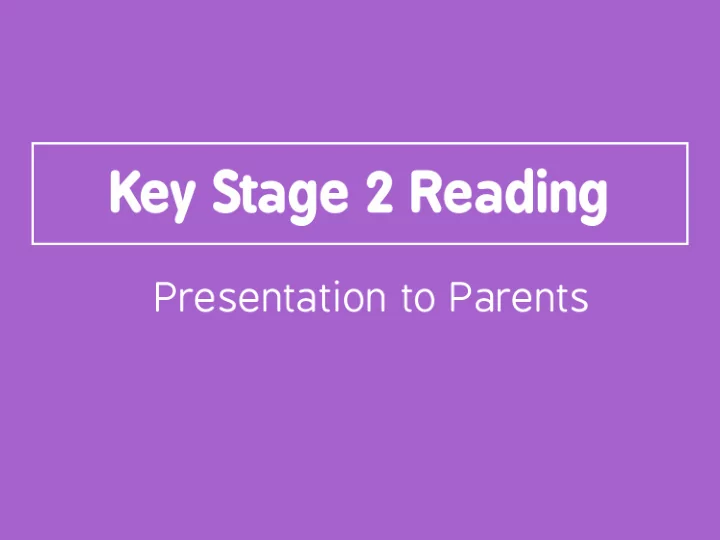

• • • •
•
• • •
•
• • • • • • Be supportive and actively listen to others • Discuss and explain your ideas • Take responsibility for your own and your group’s learning
•
Encourage your child to try different authors and types of books (see lists below for recommended authors and like for like authors)
Reading to your child • • • • •
Before reading the book: What do you think this story will be about? (Look at the front cover, the author and the title) What might happen in the story? What genre will this story be? E.g. fantasy, comedy, horror. What do we call the writing on the back of the book? (Blurb) or What does the blurb tell us? During the reading of the book: What has happened so far? Is it what you expected to happen? What might happen next? How do you think the story might end? Who is your favourite character? Why? Who is the character you like least? Why? How would you feel? What would you do? What have you learned about …… in your book? Find 2 sentences, which describe the setting. Is the plot fast or slow moving? At the end of the book: Which part of the story is your favourite / least favourite? Why? Would you change any part of the story? How? Would you change any of the characters? How? Which part of the story was the funniest, scariest, saddest, and happiest? Find some evidence in the text to support your opinion. Would you like to read another book by this author? Why? Does your opinion of this character change during the story? How? Why? If you met one of the characters from the story, what would you say to him / her? Find 2 things the author wrote about this character that made him / her likeable or unlikeable?
• Build this into your daily routine: have a quiet, comfortable space your child (and you)can read in. • Try and get into a routine that you will sustain. Read a little at a time but often, rather than rarely but for long periods of time! 20 minutes minimum. You may need a small reward to begin with… • Ensure your child sees you reading regularly whether it’s a book, newspaper or magazine as it will instill a love of reading. Consider reading at the same time. • Enjoy stories together – reading stories to your child is important no matter how well they read. Even though your child may now be a fluent reader, it is still important to hear them read aloud every day. • Encourage your child to read to younger brothers and sisters to make them feel like the ‘expert.’ • Talk about the story before, during and afterwards – discuss the plot, the characters, their feelings and actions, how it makes you feel, predict what will happen and encourage your child to have their own opinions. • All reading is valuable – it doesn’t have to be just stories. Encourage your child to read a range of texts such as comics, newspapers, non-fiction, plays and poetry etc. Help them pick their new book. • Visit the local library - it’s free!
Encourage your child to read a series of books from a favourite author or books on topics of interests, especially to keep reluctant readers interested in reading.
Questions?
Recommend
More recommend